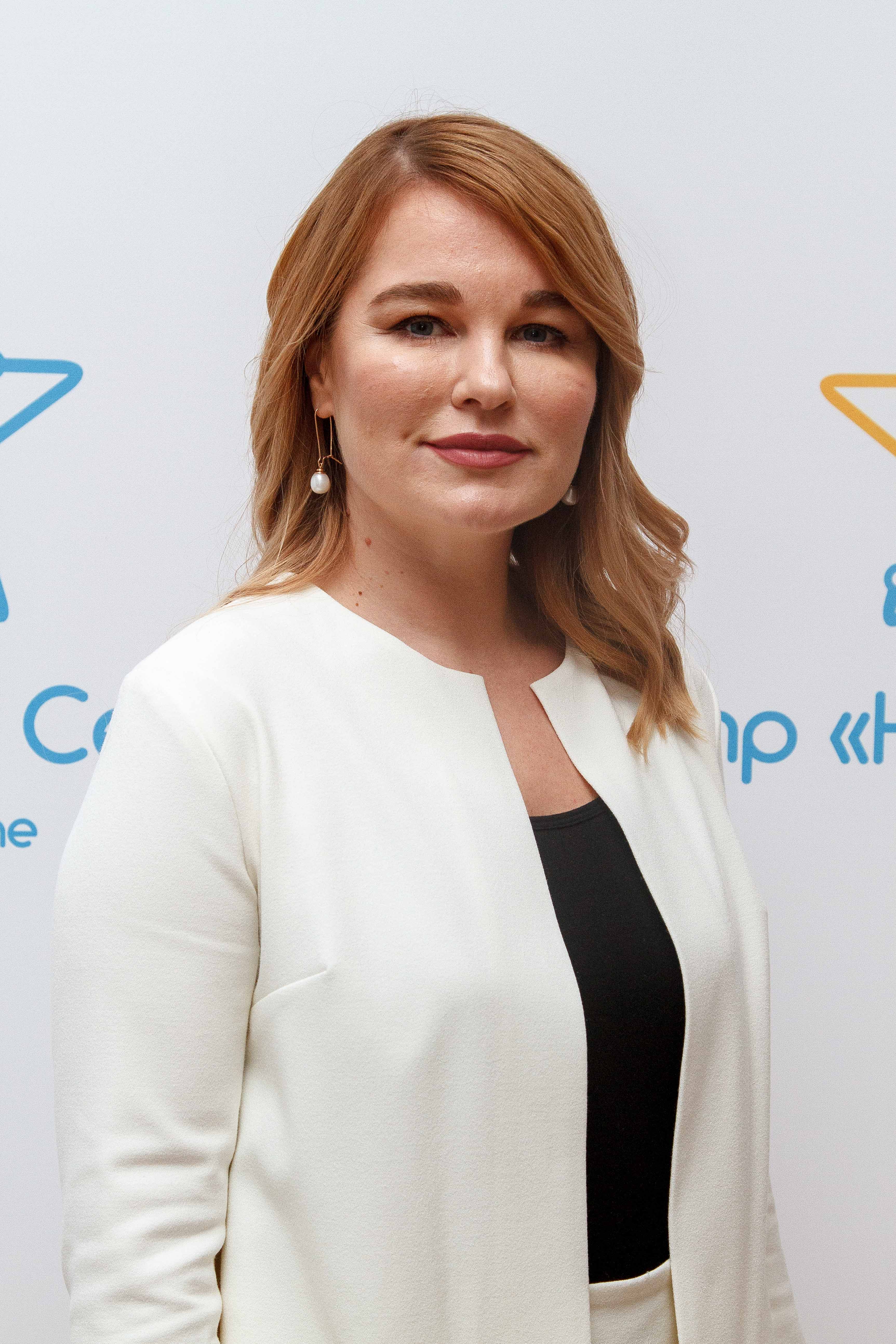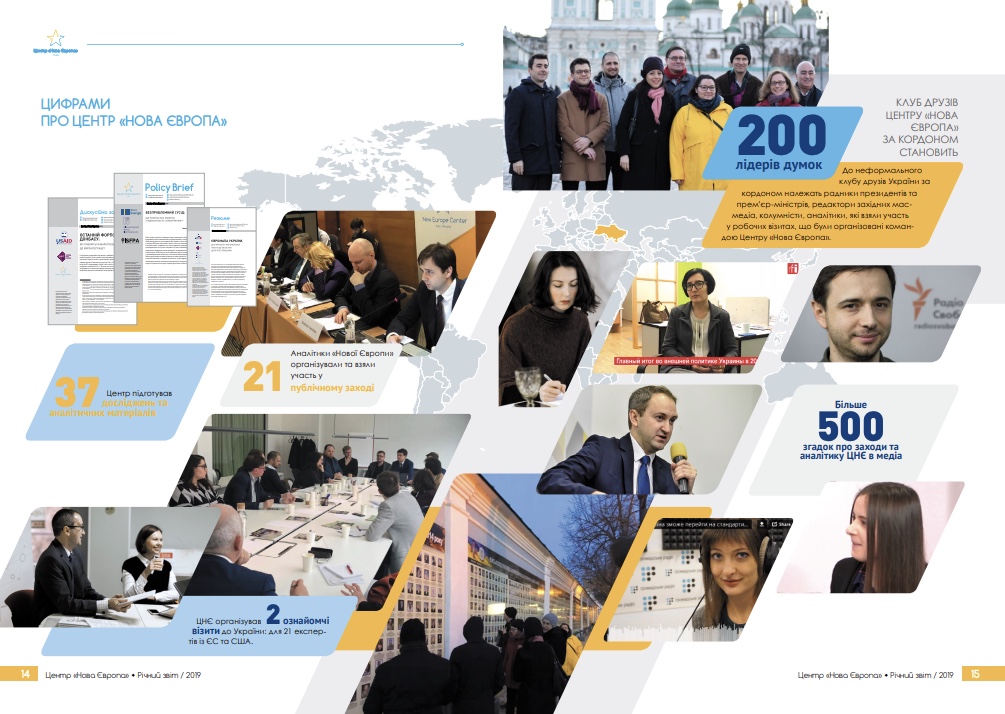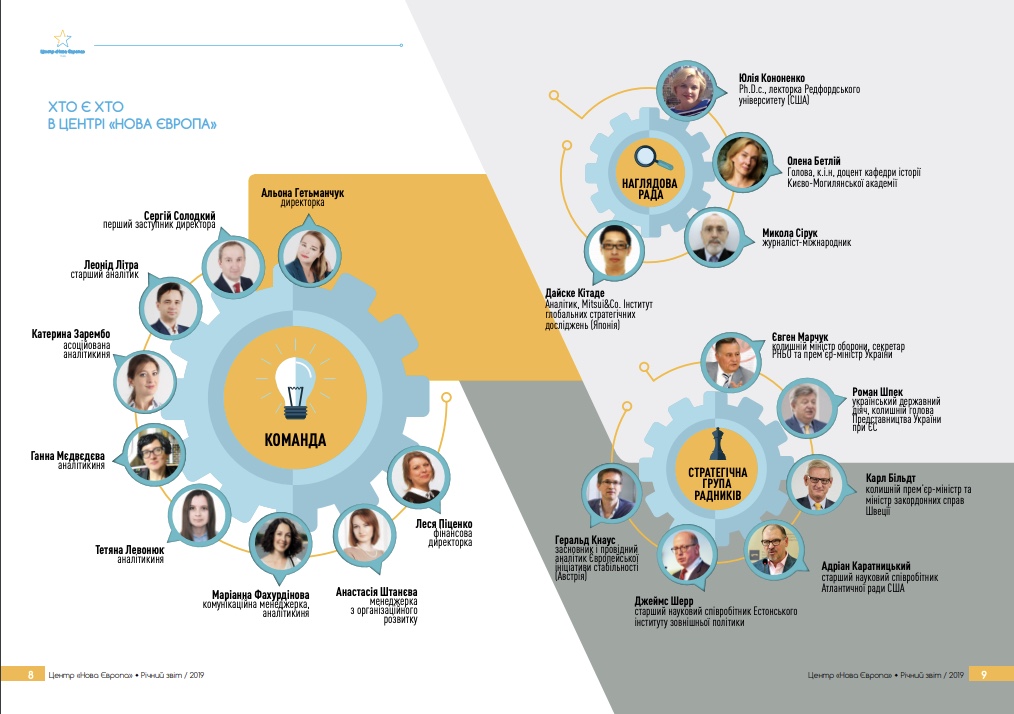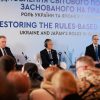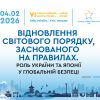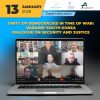Despite significant internal political changes in Ukraine in 2019, the New Europe Center continued to consistently follow its mission and three strategic priorities, which you can read more about in this report.
Through the discussion platforms we organized and the analytics we presented, we were actively present at the same time in Kyiv, in the regions of Ukraine, and in the European capitals. The effect of such a 3D presence allowed us to understand what the real demands for foreign and security expertise outside the Kyiv office were and to respond accordingly.
We are proud that in 2019, we have finally implemented our long-standing concept: we have evaluated the level of European integration of ALL regions of Ukraine. According to the indicators developed in partnership with the Government Office for Coordination of European and Euro-Atlantic Integration of Ukraine, we have created a full-fledged European Map of Ukraine, a ranking of regions in terms of their proximity to the standards, norms, and practices of the European Union. Discussion of “The European Map” results still continues in various regions of Ukraine.
In 2019, we succeeded in implementing our other analytical idea, to assess for the first time how Ukraine is implementing NATO standards. Not at the level of political declarations, but in the language of the relevant facts and their analysis.
It is important that our research and recommendations continue to be developed at the appropriate request of the authorities, as was the case with the previous President and Minister of Foreign Affairs of Ukraine, as is the case with the current Head of State and head of foreign policy authority.
We have significantly expanded our partnership with foreign, especially European and American, think tanks: we organized study visits for Western opinion leaders to Ukraine, co-authored analytical comments with colleagues from foreign think tanks, and co-sponsored public events in Ukraine and abroad.
Last year became a record breaking one for the New Europe Center in terms of our presence in the global media. The Centre’s expert publications and comments have appeared in almost all major printed media in the world, from The New York Times and Foreign Policy to The Guardian and The Wall Street Journal, from Newsweek and The New Yorker to Reuters, The Financial Times, and Forbes.
Following the principle of building a star team rather than a team of stars, we actively continued to engage the younger generation of analysts and researchers in the activities of the Center. Part of today’s Center team is our interns and volunteers of yesterday.
Most of what we have accomplished in 2019 has been driven not only by the support but also by a full-scale partnership with our partners tested through time and joint projects, notably the Embassy of Sweden, Pact, USAID / ENGAGE, the International Renaissance Foundation, BST, and GMF.
The New Europe Center is increasingly referred to simply as the New Europe, omitting the word “Center” even in rather formal communication. We do not mind, because the association of us with New Europe as a whole, and not only with a single think tank, underlines once again the importance of our mission, which we will continue to follow with great responsibility and inexhaustible energy in 2020.
Alyona Getmanchuk,
Director,
New Europe Center
Find more on New Europe Center’s activities in 2019 in our annual report.
This report was prepared by the New Europe Center as part of its project implemented under the USAID/ ENGAGE activity, which is funded by the United States Agency for International Development (USAID) and implemented by Pact, and within the Think Tank Development Initiative for Ukraine (TTDI), carried out by the International Renaissance Foundation in partnership with the Think Tank Fund of the Open Society Initiative for Europe (OSIFE) with financial support of the Embassy of Sweden in Ukraine.
The contents of this report are the sole responsibility of the New Europe Center and its partners and do not necessary reflect the views of USAID, the United States Government or Embassy of Sweden in Ukraine, the International Renaissance Foundation, and the Open Society Initiative for Europe (OSIFE).



